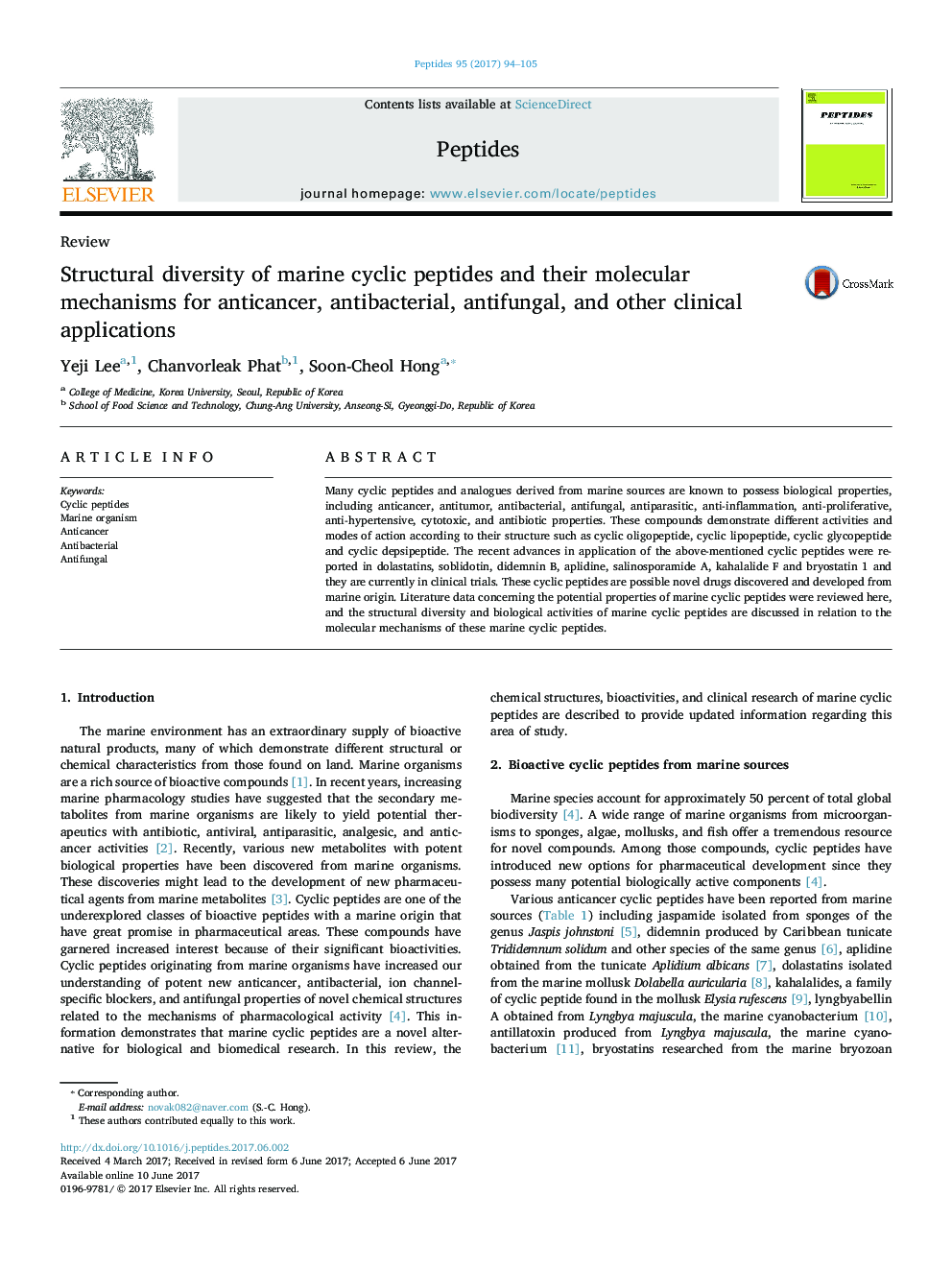| Article ID | Journal | Published Year | Pages | File Type |
|---|---|---|---|---|
| 5514631 | Peptides | 2017 | 12 Pages |
â¢Cyclic peptides and analogue from marine organisms possess potential biological properties.â¢Their activities and modes of actions may be different according to their chemical structures.â¢Chemical structure, bioactivities, and clinical research of marine cyclic peptides are discussed in this review.
Many cyclic peptides and analogues derived from marine sources are known to possess biological properties, including anticancer, antitumor, antibacterial, antifungal, antiparasitic, anti-inflammation, anti-proliferative, anti-hypertensive, cytotoxic, and antibiotic properties. These compounds demonstrate different activities and modes of action according to their structure such as cyclic oligopeptide, cyclic lipopeptide, cyclic glycopeptide and cyclic depsipeptide. The recent advances in application of the above-mentioned cyclic peptides were reported in dolastatins, soblidotin, didemnin B, aplidine, salinosporamide A, kahalalide F and bryostatin 1 and they are currently in clinical trials. These cyclic peptides are possible novel drugs discovered and developed from marine origin. Literature data concerning the potential properties of marine cyclic peptides were reviewed here, and the structural diversity and biological activities of marine cyclic peptides are discussed in relation to the molecular mechanisms of these marine cyclic peptides.
